Search Results
Showing results 1 to 20 of 185

Number Sense and Computation: Money Counts
Source Institutions
In this math lesson, learners count and compare amounts of money less than or equal to one dollar.

Fizzy Nano Challenge
Source Institutions
This lesson focuses on how materials behave differently as their surface area increases.
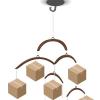
The Boxes Go Mobile
Source Institutions
Learners display their findings after a study of surface area and volume. They build a mobile to show a commercially available box and a constructed cubical box of the same volume.
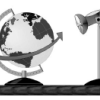
The Geophysical Light/Dark Cycle
Source Institutions
This is an activity (located on page 131 of the PDF) related to sleep and circadian rhythms as well as space travel.

Patterns and Relationships: Here, There & Everywhere
Source Institutions
In this math activity, learners use a variety of sensory modalities to gain experiences with identifying, describing and creating repeating patterns.
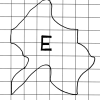
Geometry and Spatial Relations: Sidewalk Capers
Source Institutions
In this math lesson, learners use a variety of manipulatives to explore spatial relationships of squares and their transformations.

Measuring Your Breathing Frequency at Rest
Source Institutions
In this activity about the brain and sleep (on page 138 of the PDF), learners measure their resting breathing rates. Learners will discover that breathing frequencies vary amongst individuals.
Stories in the Sky
Source Institutions
In this activity, learners create their own constellations and star patterns and write a short, descriptive story explaining the significance of their star pattern/constellation.

Battleships: Searching Algorithms
Source Institutions
This activity explores the main algorithms that are used as the basis for searching on computers, using different variations on the game of battleships.
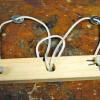
Two Washers
Source Institutions
In this activity, learners create a mind and math puzzle that requires a three-dimensional solution.
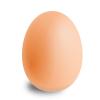
Don't Crack Humpty
Source Institutions
Groups of learners are provided with a generic car base and an egg. Their mission: design a device/enclosure to protect the egg on or in the car as it rolls down a ramp with increasing slopes.

Incredible Shrinking Shapes
Source Institutions
In this activity, learners get hands-on experience with ratios and scaling while making their own jewelry out of recycled plastic containers.
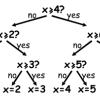
Twenty Guesses: Information Theory
Source Institutions
This activity introduces the idea that computer scientists measure information by how "surprising" a message is.
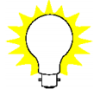
Inverse Functions: Pennies, Pressure, Temperature, and Light
Source Institutions
The major goal of this math lesson is to have learners collect data from a variety of experiments, determine what models best fits their data, and explain why their models are best.

Plugged in to CO2
Source Institutions
In this activity, learners investigate various appliances and electronics, discovering how much energy each uses and how much carbon dioxide (CO2) is released to produce that energy.
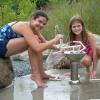
Measure the Speed of a Water Leak
Source Institutions
In this activity (page 2 of PDF under GPS: Glaciers Activity), learners will measure the rate at which water streams out of a leaky cup.
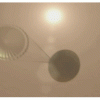
Landing the Rover
Source Institutions
In this team design challenge (page 19-24 of PDF), learners "land" a model Lunar Rover in a model Landing Pod (both previously built in activities #3 and #4 in PDF).

Carbon Sequestration
Source Institutions
In this inquiry-based lesson, learners measure the biomass of trees, calculate the carbon stored by the trees, and use this information to create recommendations about using trees for carbon sequestra
What's the Difference?
Source Institutions
In this sorting activity, learners play a game in which they try to identify the largest number of differences between two objects.
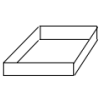
Polynomial and Rational Functions: Building Boxes
Source Institutions
In this math lesson, learners explore polynomial and rational function patterns.
